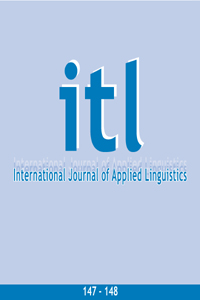 previous article in this issue previous article in this issue |

|
Document Details : Title: If All Business Education Were in English, Would it Matter? Author(s): WILKINSON, Robert Journal: ITL - International Journal of Applied Linguistics Volume: 161 Date: 2011 Pages: 111-123 DOI: 10.2143/ITL.161.0.2162437 Abstract : Increasingly, English is becoming the dominant language of business education. The reasons are well known: internationalization, globalization, and the desire to prepare students for the business environment in the coming decades. This paper speculates about the impact of English-medium instruction in business education on the nature of English proficiency, the nature of the content learned, and the perspective for business practice. Firstly, students can learn content effectively through a foreign language, and have been doing so for centuries. However, with English-medium instruction in a non-English-speaking environment, the growth in language competences in English may rather lie in specific skills, with the acceptance of ‘fossilized’ language use, reduced accuracy and less nuanced communication, even if CLIL approaches are adopted. Secondly, regarding the impact on content learning, it is possible that the learning itself may be relatively unaffected, but if both students and staff have a less accurate and less nuanced competence in English, the expressive competences may be affected. Thirdly, a language imposes its own perspectives on the world. Business education through the medium of English may engender an English filter on students’ perspectives on business practices and communication. This paper suggests that this matters. |
